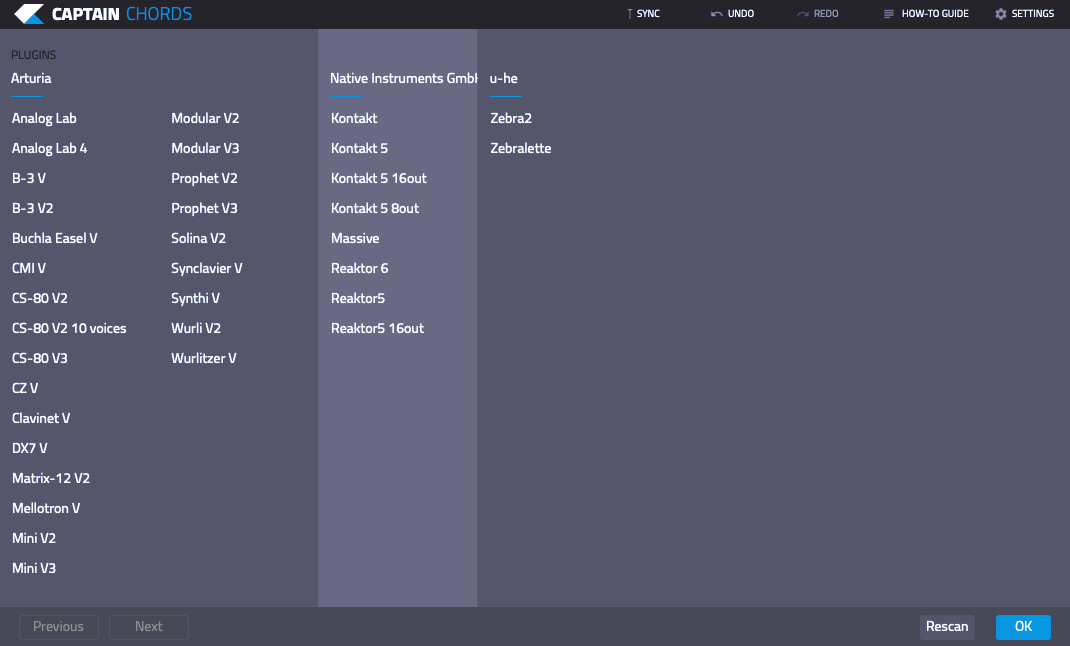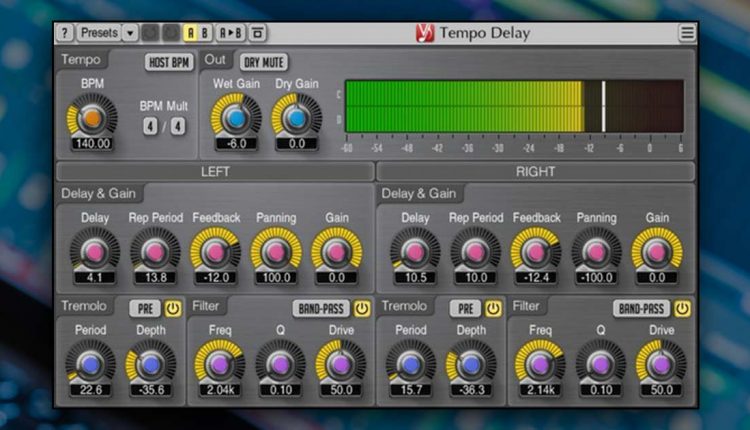Location Of Vst Plugins Pro Tools Mac
There are a few different way to use VST and AU plugins in Pro Tools 12. It’s even possible to use VST/AU plugins in Pro Tools First, the free version of Pro Tools 12.
- Location Of Vst Plugins Pro Tools Mac Os
- Location Of Vst Plugins Pro Tools Mac High Sierra
- Location Of Vst Plugins Pro Tools Macro Tools Macbook Pro 2019
A host application that is compatible with VST, VST3 or AAX (Pro Tools 10.3.5 or higher) Macintosh Version (OSX) OS X 10.8 or later; 1 GB RAM (4 GB or more recommended) 1 GB free HD space; A host application that is compatible with AU, VST, VST3 or AAX (Pro Tools 11 or higher). Host VST and AU plug-ins within Pro Tools AAX plug-in format. An extra feature that will be very useful for cross DAW collaborators is the save/load plug-in preset feature. Mix with plug-in chains within Pro Tools using Patchwork and load those plug-in chain presets within a different DAW such as Logic Pro X. RandARP is a VST plugin arpeggiator with many randomization features, allowing incoming notes or chords to be manipulated in various rhythmic ways. All standard arpeggiator parameters like number of octaves, note length and note order are included, but the plugin also offers complete randomization of the velocity, gate, shift and swing parameters.
Instructions Step 1 Download the VST to RTAS Adapter pack. Remember to match the adapter with your version of Pro Tools. Step 2 Click on the VST to RTAS. VST: Macintosh HD / Library / Audio / Plug-ins / VST / STL Tonality Howard Benson AAX: Macintosh HD / Library / Application Support / Avid / Audio / Plug-ins /STL Tonality Note: The plug-in files are “Universal Binaries, which means that 32-bit and 64-bit plug-ins are included in the same file/ Location.
One of the things that separates Pro Tools from other DAWs is the proprietary AAX format that it uses for plugins.
Not all plugins are available in AAX, especially some really good free ones, so Pro Tools users have to find workarounds to get their favorite VST and AU plugins to work.
Luckily there are a few methods that can get the job done.
Unfortunately none are free, but they all have demos to try for free, and each offers a number of other features as well.
Not all of these options will work with Pro Tools First since one of the main limitations with the free version is you have to get all the plugins through Avid’s marketplace.

Pro Tools First does supports ReWire, though, and that’s a big plus because that means it can run other DAWs that support ReWire. It can use Ableton Live’s built-in instruments, for example, and if you ReWire with Reaper it can run VST plugins within Pro Tools. Bidule is another option that works with Pro Tools First.
Using Reaper in Pro Tools to Host VST Instruments and Plugins
Reaper is a good option to use VST plugins in Pro Tools because it has a 60-day free fully-functioning demo and it only costs $60 to purchase. Plus it’s a full DAW and not just a plugin like the other options.
How To Use Any Virtual Instrument Plugin in Pro Tools First
The folks at Pro Tools Expert uploaded the helpful video above showing how to use Bidule with ReWire to load VST instruments into Pro Tools First. Bidule sells for $95 and can be used for a number of other things as well.
How To Use VST/AU in Pro Tools 12 with Blue Cat Audio Patchwork
Another option to run VST and AU plugins in the full version of Pro Tools 12 is with the Blue Cat Audio Patchwork plugin. It’s capable of hosting up to 64 VST, VST3 or Audio Unit plugins in one instance. It sells for $99 (79 euros).
Pro Tools 12 and Metaplugin – Wes Renaud
The Metaplugin is an AAX plugin that can host VST and AU plugins in the full version of Pro Tools. It supports up to eight individual channels and sells for $49.
Location Of Vst Plugins Pro Tools Mac Os
If you're using third-party plug-ins, try any of these recommendations to fix your issue depending on what you're experiencing:

- If you can open Logic Pro or MainStage, but you're having issues with your project or concert, try bypassing plug-ins.
- If you can't open Logic Pro or MainStage, try removing plug-ins.
- If a recently-installed plug-in isn't available in Logic Pro or MainStage, try the following in the order listed until you can find the plug-in:
Bypass Audio Units plug-ins
If you're having an issue in a particular Logic Pro project or MainStage concert that uses third-party plug-ins, bypass each third-party plug-in in the project one-by-one, testing the project after you bypass each plug-in.
You can bypass plug-ins several different ways:
- Place the pointer over the plug-in slot in a channel strip, then click the Bypass button so the slot dims.
- Option-click the plug-in slot so the slot dims.
- In the plug-in window, click the Bypass button so the slot dims.
If bypassing a plug-in fixes your issue, check with the manufacturer to see if the plug-in is compatible with your version of macOS, and for possible updates.
Remove Audio Units plug-ins
If you can’t open Logic Pro or MainStage, try manually removing plug-ins.
- Find the plug-in file on your Mac.
- If you suspect a particular plug-in, locate the file for the plug-in in the folder, then drag the file to the Desktop.
- Try to reopen the app.
If you still can't open Logic Pro or MainStage:
- Create a new folder on the Desktop.
- Move all the plug-in files that appear in their installation locations to the new folder.
- Try to open Logic Pro or MainStage.
- If you can open the app, replace each plug-in file to its original location one-by-one. Quit and reopen the app after you replace each plug-in file. If you can't open the app after replacing a particular plug-in file, that plug-in might be corrupted or incompatible. Try reinstalling the disabled plug-in or check with the manufacturer for an update.
Restart your Mac
If your Mac is running macOS High Sierra or later and you recently installed a plug-in that isn't available in Logic Pro or MainStage, restart your Mac. Before you restart your Mac, confirm that the plug-in is 64-bit compatible. 32-bit plug-ins aren't compatible with Logic Pro or MainStage.
- Choose Apple menu > Restart.
- Open Logic Pro or MainStage.
- Click an Audio Effect, Instrument, or MIDI Effect slot to see if the plug-in is available in the pop-up menu. If the plug-in still isn't available, rescan the plug-in.
Confirm that the plug-in is installed
If a recently-installed plug-in still isn't available after restarting your Mac, confirm that the plug-in is installed:
- Choose Logic Pro > Preferences > Plug-in Manager, or MainStage > Preferences > Plug-in Manager.
- In the Plug-in Manager, locate the plug-in. To filter the list by manufacturer, click the manufacturer's name in the left column.
- If the plug-in doesn't appear in the Plug-In Manager, find the plug-in file.
If 'not authorized' appears in the Compatibility column for the plug-in, make sure the plug-in is properly authorized as documented by the manufacturer. - Reinstall the plug-in, then restart the computer.
- If the plug-in still isn't available, check with the manufacturer to see if the plug-in is compatible with your version of macOS, and for possible updates.
Rescan a plug-in
If the recently-installed plug-in is installed, use the Plug-in Manager to rescan the plug-in.
- Choose Logic Pro > Preferences > Plug-In Manager, or MainStage > Preferences > Plug-In Manager.
- In the plug-in Manager, locate the plug-in you want to check. To filter by manufacturer, click manufacturer's name in the left column.
- If 'failed validation' appears in the Compatibility column for the plug-in, select the plug-in in the list, then click Reset & Rescan Selection.
If 'not authorized' appears in the Compatibility column for the plug-in, make sure the plug-in is properly authorized as documented by the manufacturer. Then rescan the plug-in. - If the plug-in fails validation again, check with the manufacturer to see if the plug-in is compatible with your version of macOS, and for possible updates.
Rescan all plug-ins
To automatically rescan all installed plug-ins, remove the Audio Unit cache file.
Location Of Vst Plugins Pro Tools Mac High Sierra
- In the Finder, press Option and choose Go > Library.
- In the Finder window, go to Library/Caches/AudioUnitCache.
- Move the files from AudioUnitCache folder to the Desktop.
- Restart the computer, then open Logic Pro or MainStage. All installed Audio Units plug-ins will be rescanned.
